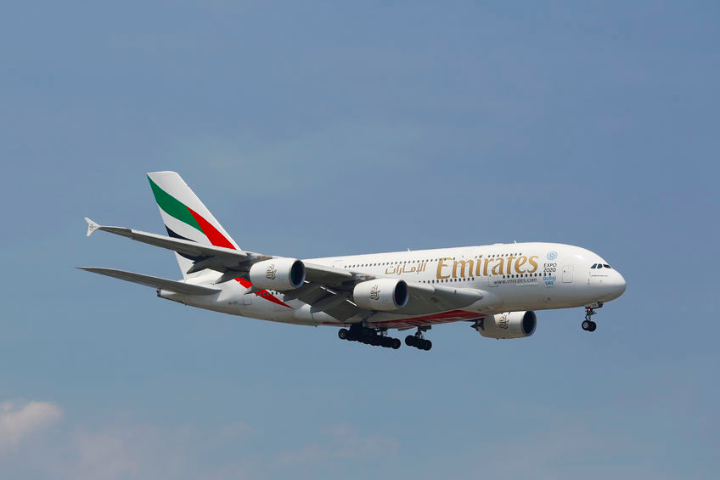
Emirates, the largest operator of Airbus Group SE’s A380 superjumbo, has all but given up on getting an upgrade of the double-decker with new engines and is instead making a more modest pitch to the planemaker: please don’t drop the program altogether. “I can’t force Toulouse to do anything,” Emirates President Tim Clark told reporters on Friday at a briefing in Dublin, referring to Airbus’s home base in southern France. “My main concern is that they stop producing the plane.” Clark has become a marketing champion for the world’s largest passenger plane, deploying the jetliner on both major trunk routes like Heathrow-Dubai as well as secondary airports like Manchester or Barcelona. While new engines would further enhance the model by providing greater flexibility with more range and higher takeoff weight, Clark conceded that talks with the manufacturer regarding an upgrade had “kind of lapsed.” Emirates is by far the largest customer for the aircraft, having ordered 142 in total. Emirates’ concern about Airbus keeping the plane on the production line is driven by the fact that few sizable buyers exist besides the Gulf operator. Airlines including Air France-KLM Group and Deutsche Lufthansa AG have actually trimmed their orders, and most customers have bought the airliner in relatively small numbers. Airbus itself says the production line has gaps from 2018. A total of 319 A380s have been ordered, fewer than the annual output of the best-selling A320 line of smaller planes. Airbus, after rushing 18 months ago to assure the airline community that it would look seriously at an A380Neo, has made increasingly clear that any such project is something for the long term. The emphasis for now is finding ways to improve the plane and carve out more space with simpler moves to better organize space on the plane. (By Andrea Rothman/Bloomberg with assistance from Christopher Jasper.)



 Nasdaq set to confirm bear market as Trump tariffs trigger recession fears
Nasdaq set to confirm bear market as Trump tariffs trigger recession fears
 Dana Gas and Crescent Petroleum exceed 500M boe in Khor Mor field
Dana Gas and Crescent Petroleum exceed 500M boe in Khor Mor field
 China to impose tariffs of 34% on all US goods
China to impose tariffs of 34% on all US goods
 Shares bruised, dollar crumbles as Trump tariffs stir recession fears
Shares bruised, dollar crumbles as Trump tariffs stir recession fears
 Wall Street futures sink as tariffs fuel recession fears
Wall Street futures sink as tariffs fuel recession fears



